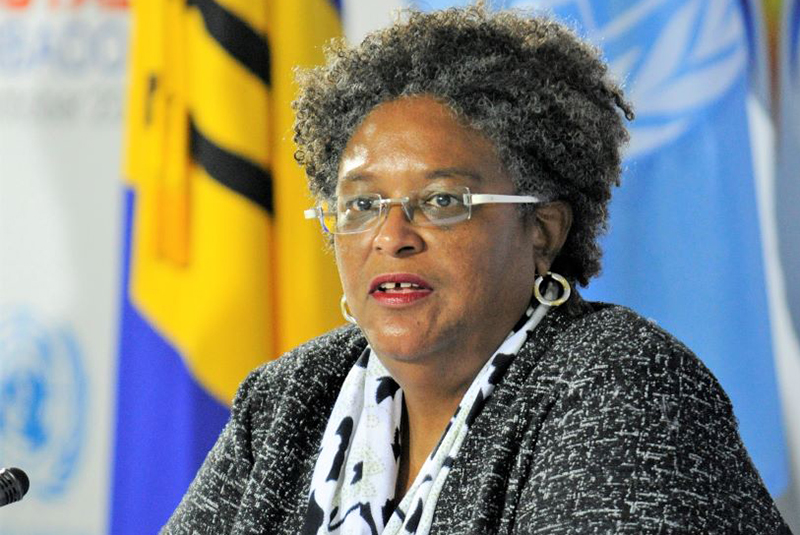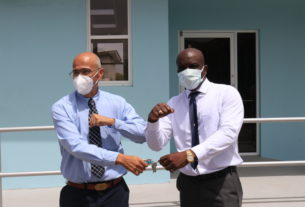BY SHARON AUSTIN | NOV 8, 2021
PICTURED ABOVE : Prime Minister Mia Amor Mottley. (FP)
Prime Minister Mia Amor Mottley has told the global community that there is a need for a loss and damage fund for countries on the frontline of the climate crisis.
Ms. Mottley, who returned to Barbados last night, but continues to engage in critical COP26 discussions, underscored this view today as she delivered remarks at the UK Presidency Event: Loss and Damage, which is part of the 26th UN Climate Change Conference of the Parties (COP26), being held in Glasgow, Scotland, until November 12.
Ms. Mottley continued: “So, a mechanism where one per cent of revenues from the sale of fossil fuel-countries that contributed most to greenhouse gases goes into a loss and damage fund, we believe, would generate over $70 billion per year.
“If we limited access to this loss and damage fund to those that have suffered a climate-related disaster, independently assessed, at greater than five per cent of their economy, with a cap on the drawdown per country, we believe that this could be sustainable, and that this is certainly a start, and it would make a big difference to those on the frontline. A loss and damage fund is imperative, and we need a panoply of responses.”
Insisting that climate-related loss and damages were here and action was needed now, the Prime Minister noted that the tropical island states most at risk had contributed less than one per cent of the stock of greenhouse gases that had contributed to global warming.
Therefore, she said, this fund would allow those responsible countries to contribute to the loss and damage of those suffering.
Ms. Mottley said the climate crisis is uninsurable for many, explaining that for those on the frontline, it brings various risks, including flood damage and drought loss. She proffered the view that insurers would eventually withdraw, because if they did not, “they will go bust”.
The Prime Minister noted that the single largest contributor to the stock of debt of many countries on the frontline was the cost of recovering from climate-related and other natural disasters. “There is a nasty nexus between the climate crisis and the debt that the world is also denying,” she argued.
She emphasised the importance of natural disaster clauses, describing them as “the instrument of our times”. Ms. Mottley suggested that brave developed countries in northern climates needed to start issuing the natural disaster clauses, so as to help normalise the instrument and to reduce uncertainty.




